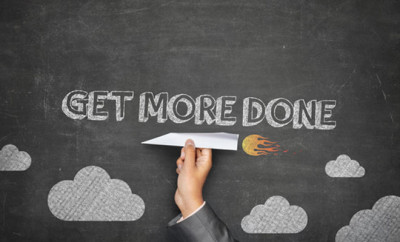
The Complete Guide to Marketing by Phone
All right, the title is a bit over-the-tip for 700 words of help, but I did get your attention. Many consultants hate using the phone, especially to market or sell. Here are some techniques to ease the burden (and improve things still more for those already adept).
First, obtain an outstanding phone. You want one that is at least two-line (house and office line), NOT doubling as a fax, with clear reception. Usually, these are “hard line” phones. Wireless phones simply pick up too much static and interference for reliable quality. You’ll also want a few speed dial lines (no one can remember or want to fumble with 50 speed-dials, which negates the purpose), a “mute” button for those times the dog barges in, redial key, speakerphone, and “hold” feature. You should acquire “call forwarding” and “call waiting” from your phone company. Caller ID can also be a huge help.
Use a headset for a succession of calls or particularly lengthy calls. They are exceptionally high in quality, but make sure you obtain a configuration that doesn’t squeak and squawk when you switch from one mode to another. Good headsets can’t be detected by the other person, and they allow you to use your hands for files and notes, and to avoid cramping of your arm and hand.
Keep a mirror nearby. No kidding, practice smiling. If you smile, you relax facial muscles and create a smoother voice and flow. If your face is tense, your voice will usually be tense, also.
Have some water handy. Your mouth can get dry, and that “cotton mouth” sound is not exactly confidence-inspiring.
Create a comfortable environment. Create a place to elevate your feet without crushing the computer keyboard. Have your key files handy. Use a long enough cord on the phone so that you can get up and pace or walk nearby to get additional materials. Make sure you have a clock, so that you know how long you’ve been on. If you’re going to use your computer to find a date or find correspondence, tell the other party so that he or she doesn’t think you’re typing something else while listening to them.
Keep your diary or calendar nearby, so that you can instantly make appointments and schedule events. If you use a contact management or tracking system, keep it active so that you can immediately record the latest developments and plan future follow-up.
Try to have all related reference material within reach. I’ve consulted a dictionary when someone has used a word I don’t recognize, and a map when I’ve been asked if I can fit in a visit during a planned trip elsewhere. The prospect or client files should be in front of you, as well as any other background that may help in the conversation. Open the files you’ll need on the computer before the call so that you don’t have to fumble with things during the discussion.
Don’t be afraid to use a “script” of sorts. That is, you may want to remind yourself, especially in a sales call, of how you want to begin the conversation, what value you want to propose, which next steps to mention, etc. A script can be equally valuable when leaving a message with an assistant or on voice mail, since you want to make the best possible impression.
You may want a small recording device on the phone. This is very helpful when the other person is providing intricate details, directions, or explanations. You can also refer to this to determine when something was suggested and when something was agreed upon. Micro-cassette recorders are inexpensive and connect directly to the phone line.
If you simply pick up a phone and hope for the best, you’ll usually be disappointed. A little preparation will make you more confident and, therefore, more successful.
Article reprinted with permission from Alan Weiss.
© 1996-2008 Summit Consulting Group, Inc. All rights reserved.







